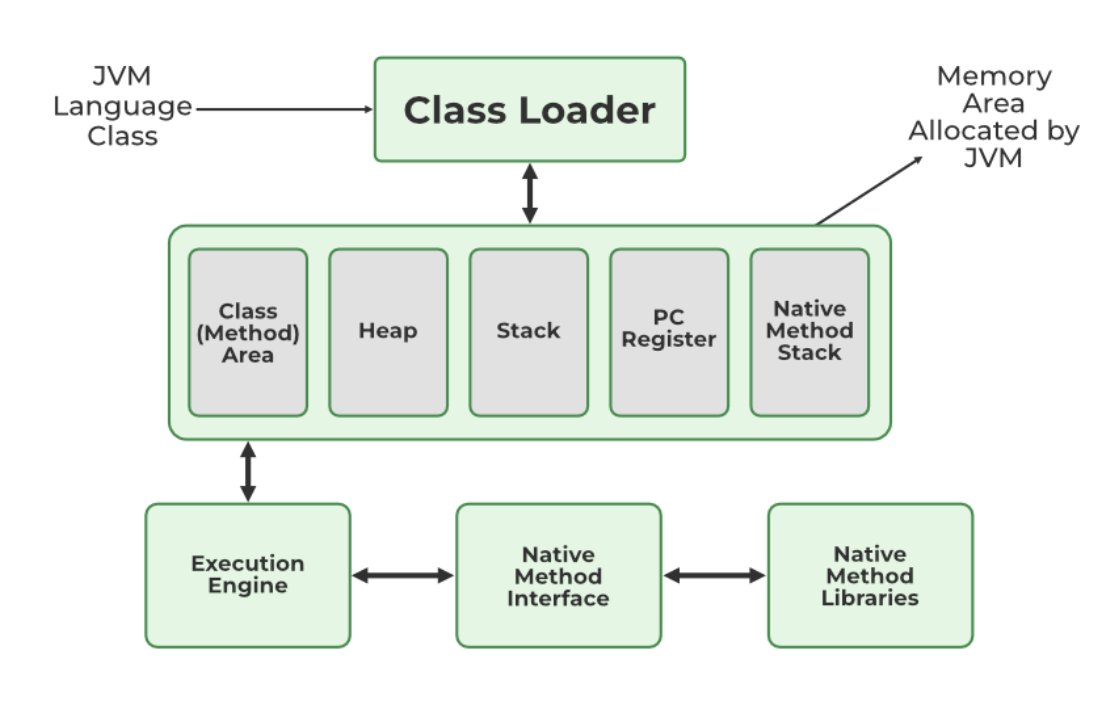Java Virtual Machine (JVM)
Java Virtual Machine file preinstalled in the operating system for further execution of the bytecode.
Although JVM is platform dependent, the bytecode can be created on any System and can be executed in any other system despite hardware or software being used which makes Java platform independent.
Differences between JVM, JRE and JDK
What is JVM?
JVM is a Java interpreter. It is responsible for loading, verifying, and executing the bytecode created in Java.
Although it is platform dependent, meaning the software of JVM is different for different Operating System it plays a vital role in making Java platform independent.
What is JVM? What does it mean when it's based on the JVM?
When a language is described as being “based on the JVM” (Java Virtual Machine), it means that the language’s runtime environment and execution model rely on the Java Virtual Machine for running code. This typically implies that the language’s syntax, semantics, and libraries are designed to integrate seamlessly with the Java ecosystem and leverage the capabilities provided by the JVM.
Languages like Java, Scala, and Kotlin are considered to be based on the JVM because they are designed to compile to bytecode, which is executed by the JVM. This allows them to take advantage of JVM features such as garbage collection, platform independence, and interoperability with existing Java libraries.
What are Memory storages available with JVM?
Arrays in Java is managed by the JVM. Interesting. Arrays are always created on the heap, regardless of how they are declared or used.

